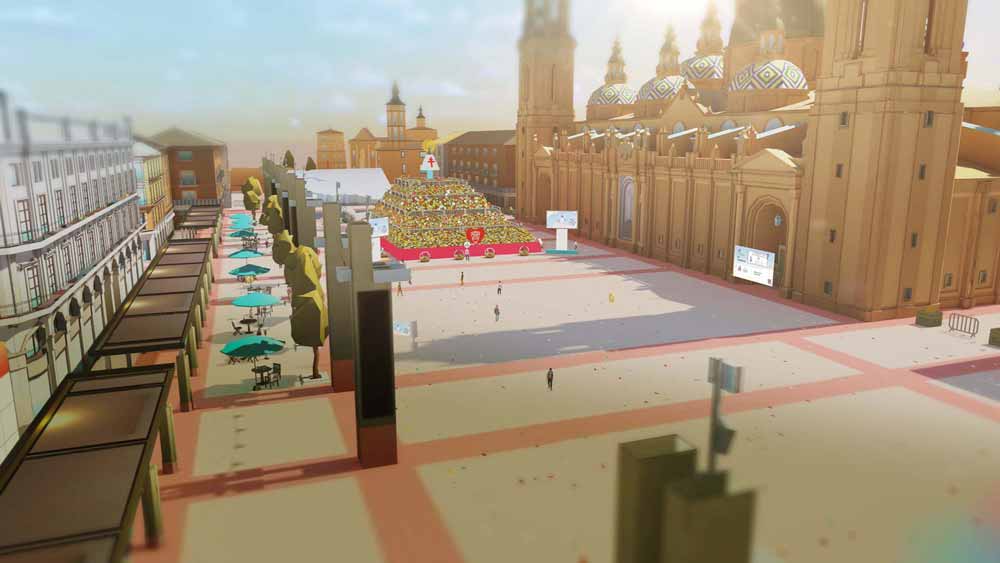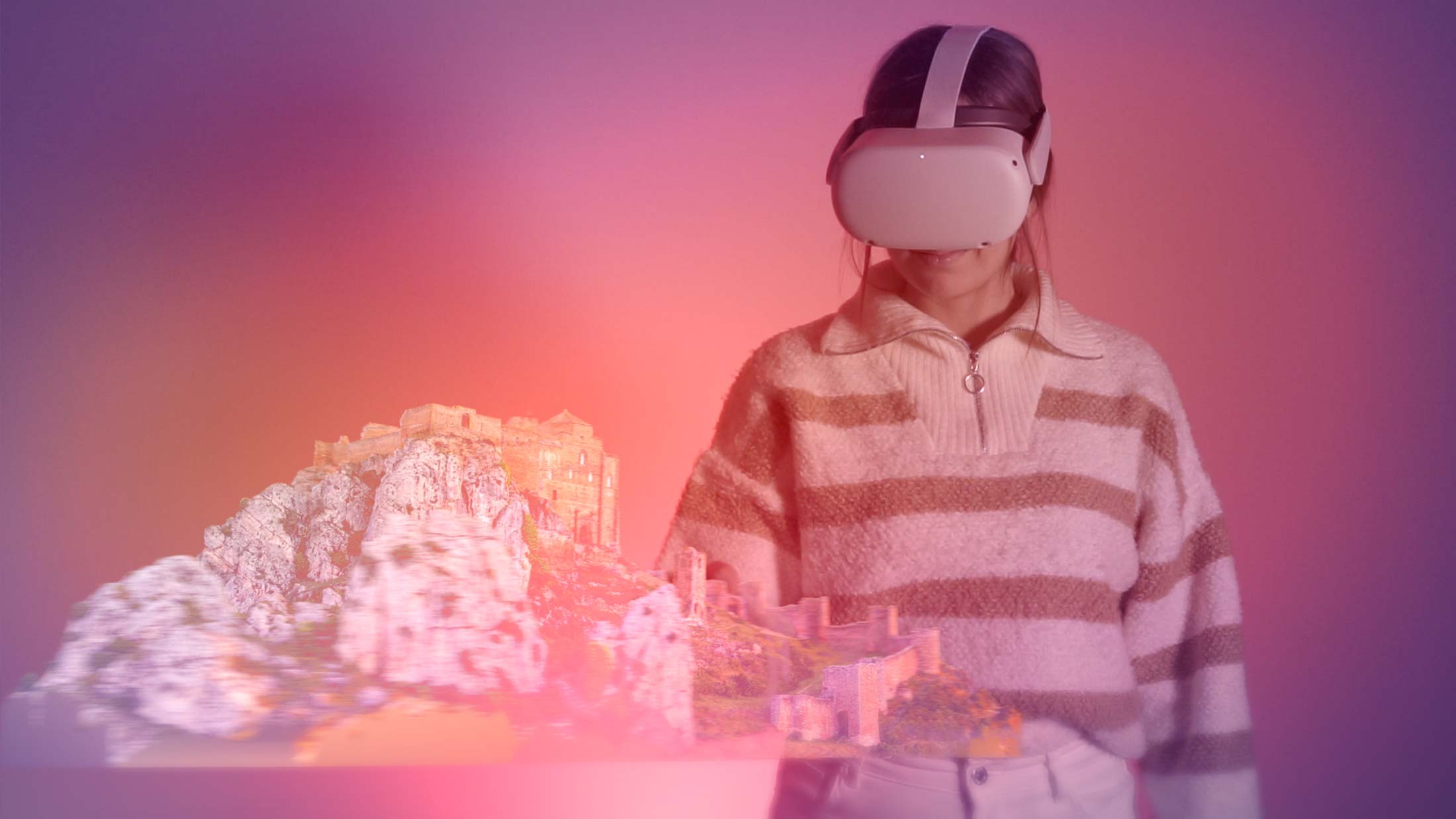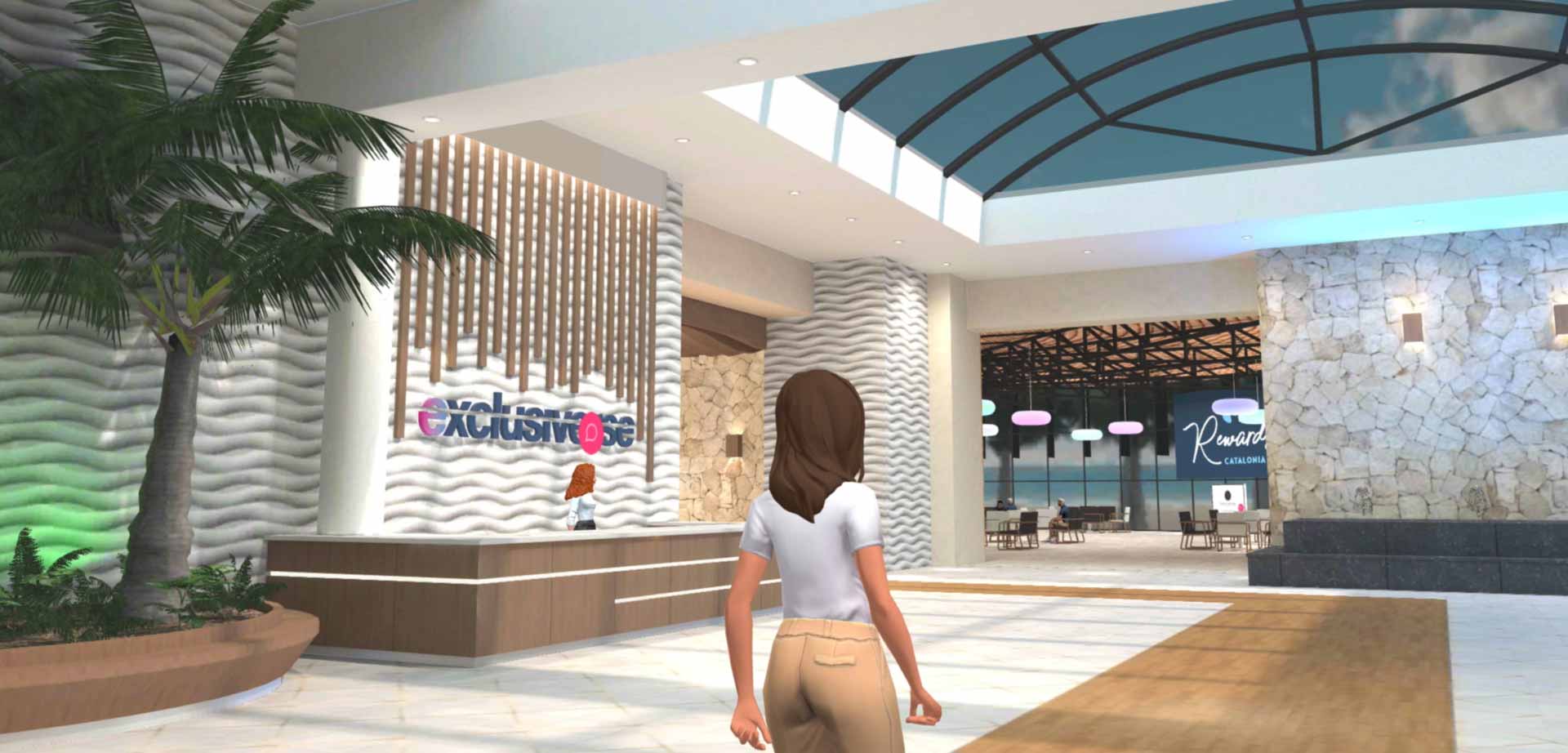Metaverse and tourism: revolution in the sector
Metaverse and tourism: revolution in the sector
Metaverse, Extended Reality, Web 3, Spatial Computing... The virtual universe of interconnected worlds is already a reality, also for the tourism sector. The possibility of creating new experiences that are different, accessible and personalized makes the tourism and catering, one of the most developed sectors in the Metaverse.
From virtual receptions that make it easy to book stays and take virtual tours to discover unimaginable places, to enjoying interactive museums and learning about the best routes in real time through Augmented Reality maps. These are just some of the proposals that have already been developed in the new virtual world, but there are many more.
It's time to get an in-depth look at how the leap from tourism to the Metaverse.
The revolution of tourism in the Metaverse
Both the Extended Reality such as the Metaverse and other immersive technologies have great potential to boost the hotel/travel industry in the virtual world. These technologies are capable of extending the travelers' experience beyond their stay and triprevolutionizing the before, during and after.
Before going into more detail on what the introduction of the new technologies will mean for the sector, it is necessary to tourist experiences in the metaverse, it is important to review what this technological trend consists of.
The Metaverse is defined as a large virtual universe composed of multiple interconnected digital worlds. It is the next Internet leapwhere humans interact socially and economically through the use of avatars, NFTs y cryptocurrencies in digital experiences that go beyond the static websites we all know.
The central idea of this new ecosystem known as Metaverse is to humanize the virtual world and our digital presence.
You can learn more about this topic here: What is the Metaverse: everything you need to know.
This more humanized interaction allows the tourism sector to connect with users/customers in ways previously unthinkable in the digital world. By developing experiences that help tourism agents to transform the customer experience at all stages of the journey.
- From the promotion and marketing of tourism experienceswith digital twins of the tourist destinations where users can tour the spaces, learn in depth about the activities and get inspired/imagine the tourist experience beyond the photographs and promotional videos.
- The reservation management and personalization of tourist services, through the virtual hotel itself in the Metaverse, where users can customize their stay and trip, in an intuitive and accessible way. For example, through their own 3D hotel room, where they can choose the type of pillow, layout and other complementary services.
- Building a community of travelers and fostering loyaltythrough multi-user and interactive virtual spaces in which to hold events with people from all over the world. Spaces in the Metaverse where to share travel experiences, obtain benefits for being part of the virtual club and learn about the latest proposals of the hotel chain or tourist destination, as in the case of the success story Exclusiverse.
Total immersion
If there is one characteristic that sums up this added value offered by the Metaverse is the total immersion of the users. The Metaverse applied to tourism offers a unique and immersive experience for travelers.
Allows explore destinations virtuallyinteract with 3D environments and access exclusive content. All in first person and with a 360º vision that allows users to visit the space at their own pace and with great freedom of movement. Providing the opportunity to travel without limits, to live immersive and exciting experiences without leaving home.
Virtual destinations
Thanks to the Metaverse and other immersive technologies, a new trend in travel has been created: the virtual tourism. Virtual destinations offer a new innovative way to explore places without the need to physically travel to them.
Thus, you can visit cities, paradisiacal beaches and even travel to places in the past or imaginary. All through Virtual Reality or virtual spaces in the Metaverse. These virtual destinations are designed in great detail and allow you to interact with the environment, personalize the experience and participate in gamified virtual activities.
If you are interested in this topic, find out more about the Virtual tourism as a new trend.
Benefits of tourism in the Metaverse
The tourism sector is a sector of experiences, and the commitment for the coming years is to offer new experiences for travelers that go beyond the simple trip.. Thus, as we have seen, the Metaverse offers all sorts of benefits to Tourism for the digital transformation sector.
These are some of the main benefits of tourism in the Metaverse:
Personalization of the tourist experience
The Metaverse applied to tourism revolutionizes the personalization of the experienceby providing immersive virtual environments that adapt to travelers' individual tastes, preferences and needs.
For example, adapting content depending on the segmentation of the traveler profile. Through these virtual twinstravelers can explore the destination prior to arrival, plan customized itineraries and experience gamified 3D simulations.
In addition, thanks to the incorporation of the Artificial Intelligence in the Metaversecan be analyze behavioral data and interaction preferences. All so that the integration of these technologies offers travelers a unique experience tailored to their tastes.
Increased accessibility.
One of the main benefits of Metaverse experiences in the tourism industry is the greater accessibility. Thus, new smart destinations are developed to which you can travel virtually. As a way to reduce costs for the traveler who simply wants to live unique experiences without the need to travel physically.
Travel to the past, enjoy extreme sports, live an adventure in inhospitable areas around the world... This greater accessibility offered by the Metaverse and other immersive technologies also allows you to go beyond physical limitationsThe new system allows people with reduced mobility to explore different destinations and experience many more adventures.
Promote the link with the tourist destination
The combination of tourism with these technologies not only enriches the experience of the destination, it also strengthens the connection between the travelers and the tourist destination.
The Metaverse facilitates the creation of online communitiesThe objective is to generate a feeling of belonging, active participation and linkage with the brand, hotel, travel agency or tourist destination. This also facilitates cross-selling and the search for complementary activities to remain connected and committed to these places.
Practical applications of tourism in the Metaverse
Below we present different practical applications of the Metaverse in the tourism industry through national and international examples that have already been implemented in all types of tourism companies.
- Cultural tourism. If there is a project that shows the great potential of these technologies in the most cultural tourism is the Metaverse of the city of Zaragoza, recreating in 3D the experience of the traditional Flower Offering during the Fiestas del Pilar. A tourist action that has reached 51,000,000 million people in impacts with more than 350,000 unique users. Presenting the culture, tradition and folklore of the city through the new virtual world.
- A new way to inspire the traveler. Another relevant application of the Metaverse in tourism is its ability to inspire the traveler beyond videos, web pages and photographs. The digital twins allow to visit the tourist destination in advance, being able to know in advance the tourist spots. Among the most important tourist digital twins we find the complete virtualization of the Rafa Nadal Academy in Manacor. In which it is possible to tour all the facilities, learn about its history and enjoy exclusive content.
- Online community building. The Metaverse allows to strengthen the online community and encourage cross-selling by creating a space where, when traveling back home, the interaction with the brand continues in the virtual world. As in the case of Exclusiverse, which encourages the loyalty of its +80,000 members through exclusive content, discounts and unlocking new interactive experiences.
- Accessible tourism. Tourist experiences in the Metaverse also represent a new boost to accessible tourism. They offer immersive virtual spaces that allow visitors to get to know places that are difficult to access or that do not have the necessary adaptations so that people with reduced mobility or disabilities can visit them in person. As in the case of the Loarre Castlewhich, through the social initiative promoted by Itainnova, offers LOARRE XR, a space in the Metaverse to virtually tour the more than ten centuries of history and beauty of the fortification.
Metaverso's projects in the tourism sector of Imascono
At Imascono we know that the future of the tourism industry lies in the development of interactive and immersive experiences. that involve travelers and generate a real connection. Thus, the Metaverse is positioned as one of the main technological trends for the tourism sector. Thanks to its ability to revolutionize the before, during and after the trip.
From the Exclusive Traveler Club to the Rafa Nadal Academy, the Goya Museum, the Loarre Castle or the Barceló hotel chain, there are many tourist companies, museums and public administrations that trust in Imascono for to make the leap to the new virtual context.
With more than 12 years of experience in the development of amazing projects focused on the Metaverse, Extended Reality and Artificial Intelligence, our team of engineers and designers will be happy to help you to to boost your tourism business in the new virtual context. Contact with us and take your tourism experiences to the next level.



